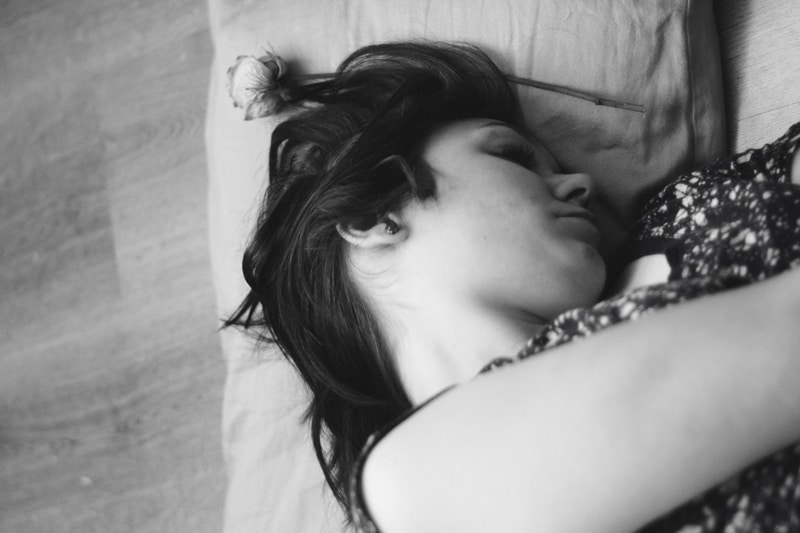
(Image)
Relapse, verb –
- to fall or slip back into a former state, practice, etc.: to relapse into silence.
- to fall back into illness after convalescence or apparent recovery.
- to fall back into vice, wrongdoing, or error; backslide: to relapse into heresy.
A common view of relapses is that the start of the relapse is when you fall back into your former state of being.
For example, for an alcoholic, his relapse starts when he takes his first sip after a period of sobriety. For someone with clinical depression, his relapse starts from the onset of his depression. For a smoker, his relapse starts when he takes his first puff (after a long break). For an emotional eater, his relapse begins when he eats unhealthily after a period of healthy eating.
This view is good in that it helps you categorize the periods when you are “down” and the periods when you are “clean.” It helps you work towards the goal of becoming “clean” — clean of addiction, clean of the bad habit, clean of the bad practice. This is the goal of rehabilitation clinics — to help you be clean and stay clean.
However, the problem with this view is that it only looks at the physical occurrence of the relapse without considering the big picture. The reality is that the point when one falls back into their old behavior isn’t the start of the relapse — it is actually the end of the relapse. The issues that contribute to the negative behavior have usually been present for a while before the relapse manifests itself. It’s just that the issues are hidden below the surface and are hence not observable.
Understanding How Relapses Occur
Let me do a breakdown of a relapse process so that you know what I mean. I’ll use the example of drinking, though what I’m saying applies to any “relapse”-type situations, like emotional eating, junk food eating, smoking, depression, slipping into bad habits, losing grip of good habits (say exercising, healthy eating, waking early, consistent studying), bad temper, overwhelm from stress, and so on.
Jane has a drinking problem. She is not an alcoholic but she drinks a lot, sometimes uncontrollably. She knows that drinking is not good for her and she wants to stop drinking permanently.
So she turns to healthier beverages, such as water, tea, and juices. She removes all alcoholic drinks from her house. She stops going to parties where people drink so that she will not be tempted. She stocks up her home with fresh fruits so that she can blend her own drinks. She switches over to this new habit with relative ease.
Occasionally she thinks about drinking. This ranges from a fleeting thought to an overwhelming urge. But since there are no drinks in her house, she has nothing to drink even when she wants to. She either suppresses the urge or forces herself to go to sleep. This continues on for the next few weeks.
After a month of sobriety, she is invited to a party one day. She thought: “I’ve been doing so well in the past month. I should be alright at this party.” As it turns out, she decides to have a sip of wine while she is there so that she does not stick out like a sore thumb. A sip turns to a glass, which turns to two glasses, then three glasses, then four and five. She returns to drinking after that since she has already ruined her sobriety. This goes on for a short while before she tries to be sober again.
Here, it looks like the relapse happened during the party. However, the relapse happened way before that — before the first thoughts of drinking even surfaced in her mind. When it started depends on Jane’s subconscious reasons for drinking. If Jane’s drinking is due to a lack of self-love, then the invisible forces of Jane’s relapse were kicked off from the moment she started neglecting herself. If Jane’s drinking is due to lack of excitement in her life, and she uses drinks to fill this void rather than address the feeling of lull, then the invisible forces were kicked off from the moment she suppressed herself to stay in a boring life routine.
Even though Jane technically didn’t drink during these moments (be it when she neglected herself or when she suppressed her needs), all these are the little moments that initiated, and subsequently created, her relapse. Each time these moments happen, they build up to the point when a relapse happens.
The thought to drink when she attended the party simply meant that she has already lost control of the situation. In the end, she takes that first sip and ends her sobriety. It may look like the “relapse” could have been easily avoided if she had avoided the party, and this is true in terms of avoiding the relapse at the party. But the slip was already a long time coming. Attending the party was merely the final straw.
By the time Jane got her first sip, the situation was too far gone for her to do anything. The internal battle of “Should I drink? I want to drink! Wait, I shouldn’t drink!” had come to a head, to the point where she was not conscious enough to rationalize and sort out her thoughts. All she could do was merely ride the waves and act out her urges. Even if she had forced herself not to drink, if she had continued to ignore the root causes of her drinking behavior, this mish-mesh of thoughts and emotions would simply act out at a different time, at a different place. This is why bad habits persist despite one’s best efforts — because people neglect to understand the underlying root causes of these bad habits.
This brings to mind a Chinese fable I read when I was young. Two groups of animals were doing a tug-of-war and it was a tie between them. The rat joined Team A which tipped the scales in their favor, and they end up winning. When the rat tried to claim credit for the victory, the other animals corrected him by saying that it was a teamwork effort. The rat wasn’t the sole reason for the victory. If he were the only member in Team A doing the tug-of-war with Team B, he would not have won.
Similarly, the supposed cause of the relapse (being at the party) is merely the final nail in the coffin. It’s not the actual or sole reason for the relapse. The relapse had already started way before that, when the root causes were triggered.
The point at which Jane could have remedied the situation would be right at the start, when she was feeling conscious and aware. For example, asking herself: During the times when I drank, what was my reason for drinking? What was I doing and feeling each time? If I dig into each situation, what were the root causes of my drinking each time? And what can I do about them starting now?
These are questions she should be reflecting and acting on. These are the same questions that I ask my clients to help them bust negative patterns and instill good patterns permanently.
In doing so, she would have nipped the problem in the bud. If the thoughts to drink were to resurface later, it would merely be a sign of an impending relapse and that there are more steps to take to properly recover. These thoughts would serve as a helpful indicator to prevent the actual physical relapse — rather than waiting until it was too late to fix the situation.
Example: Emotional Eating
Let me use another example, which is emotional eating. I have written extensively about my emotional eating issues in How To Overcome Emotional Eating (6-part series), which I recommend you to read if you have difficulty sticking to healthy eating patterns. I also have an in-depth 8-week course on how to stop stress eating where I work with participants live to address their eating issues permanently (registration is now closed for the 2018/2019 run).
Looking back at some of my past emotional eating episodes, they could be described as sudden frenzies of uncontrollable eating, usually of junk food, that tainted my healthy eating endeavors. They tended to occur at night and would last for a couple of days until I got a hold of myself and “restarted” my healthy eating process by starting anew the next day. Before these bingeing episodes though, I would usually be eating perfectly healthy with no problem at all.
If I were to perceive the bingeing episodes as the issue, I would be locking food in the cabinets every night — perhaps even sleep early every day so that I wouldn’t run the risk of bingeing at night. I might even isolate myself by living in a place where no junk food exists. However, this would not solve anything because firstly, I can’t physically lock away all the food in my household — there is too much food. Also, I was living with my parents and brother then and this wasn’t something I could do without affecting others. It’s not realistic to isolate myself by living in a place with no junk food — junk food is everywhere today and I would be turning my whole life around just to solve a simple problem of eating, out of the 1001 problems one has to deal with in life. What would I do then if I have to up-heave my life each time such an issue occurs?
Secondly, logic is out of the window when it comes to emotional eating. This is the same for any “relapse” situation for anyone — you clearly can’t think logically anymore and that’s why you slip into the bad habit. If I were to lock the food in cabinets (which I never did because it’s pointless like I said previously), I could easily unlock them. Even if I managed to control myself and not unlock the cabinets, I could easily walk into a 24-hour store and buy food, usually the worst kinds, to eat.
Clearly, the bingeing episodes were not the issue as much as they were only a reflection of an underlying issue. If you have an eating issue, and you try to solve it by external physical actions like locking food in cabinets or purposely hiding from food, you’re not really solving the problem as much as you’re hiding from the root cause of the problem. True resolution of the problem is when you’re able to eat healthily naturally and behave in line with your ideal behavior without any need to externally “force” yourself. Otherwise you’re forever in a tango with the problem. It may look like you have solved the problem, but you’re in fact still stuck in it.
In How I Overcame Emotional Eating, Part 1: Food as a Symbol of Love, I shared that a big part of my emotional eating was the result of seeing food as a symbol of love. Hence, whenever I binge ate in the past, it was because I lacked love (self-love). It was not specifically the point when I binge ate that this happened though — it was the compounded effect of forcing myself to do things, depriving myself, being harsh on myself, and neglecting my needs through the day(s) (week(s) / month(s)) that eventually led me to “slip” and binge eat at night.
The “relapse,” the bingeing, was in the making long before the first uncontrollable bite occurred. That first bite merely represented the point at which my conscious self was no longer able to hold things together anymore — during which the problem then spilled over to reality.
This is the same whether you’re dealing with unhealthy eating, excessive eating, drinking, smoking, addiction, finger biting, or some other bad habit.
By recognizing this, I was able to identify the points at which the real relapse for my emotional eating began — which would be the times when I neglected my needs and made myself do things that I didn’t want. By working on that, I was then able to overcome emotional eating and reach a state of natural, effortless healthy eating.
How to Prevent a Relapse: Recognize When It Really Begins
Most people with addiction problems check into rehabilitation clinics when their addictions resurface. However, that’s when the problem is too far gone. They should be looking for help long before that.
When you only wait until your relapse occurs before you fix the issue, that’s way too late. Not only do you have to fix the problem, but you have to deal with the sticky aftermath of the situation and the pain and disappointment of having a relapse. Secondly, you have to chase the problem at its tail rather than getting a leg-up on the issue. Last but not least, you don’t deal with the root of the problem but rather its effect.
Trace Your Relapses
Think about a bad habit or practice you have that you have been trying to remove.
Here are my questions to you:
- When’s the last time you did this?
- Tracing back, when do you think the relapse really started?
- What can you do to prevent this bad habit or practice from occurring in the future?
I have another article Are You Facing Repeating Patterns in Life? where I talk more about addressing negative patterns in life. Also, check out my related articles on building good habits / addressing bad habits :) –
- Develop a Good Habit in 21 Days
- How To Remove a Bad Habit
- How I Overcame Emotional Eating (series)
- The Emotional Eating Live Course (class is full and registration is now closed for the 2018/2019 run)

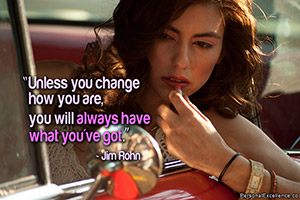
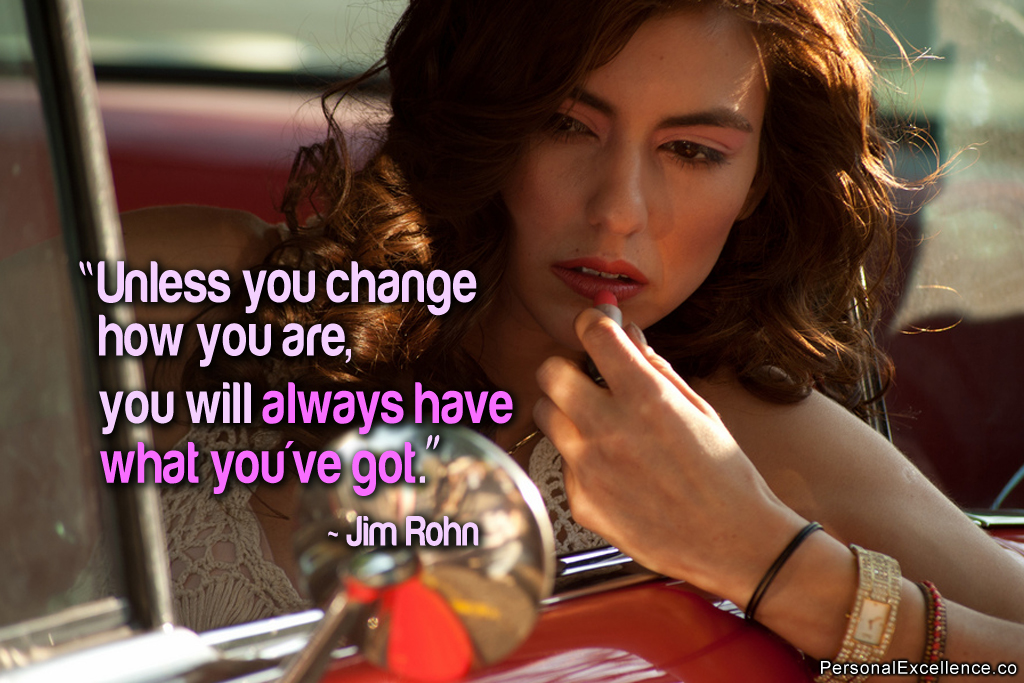
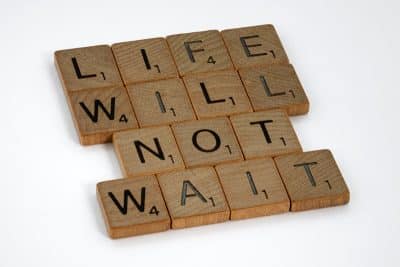

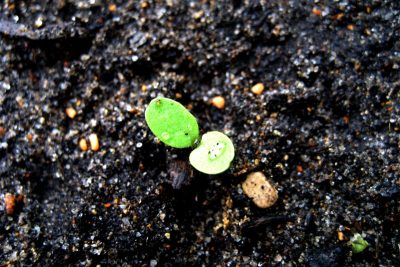

 If you like my articles, join my community of 65,000 readers and get my latest articles delivered to your inbox. Your email is safe. 100% no spam.
If you like my articles, join my community of 65,000 readers and get my latest articles delivered to your inbox. Your email is safe. 100% no spam.
Hello i’m 15 but i still don’t understand what a relapes means? how you know if you have one?
A relapse is when someone reverts back to a bad habit after abstaining from it for some time. If you are a smoker and you stopped smoking for a month, but started smoking after that, then that’s a relapse.
hello Celes, how are you?
I really want someone to help me. I am 20 years old, female. I have a compulsive disorder which is Trichotillomania (I have a compulsive urge to pull my lashes and brows..). It is a kind of bad habit that I (both consciously and unconsciously do) when I am nervous, worried, anxious and stressed.
It started 3-4 years ago. I tried to stop this habit many times. However, what happens is that I successfully stop pulling my lashes & brows for about 2 weeks, and they start to grow again, and I feel proud of myself, then suddenly I find myself pulling them again till no more hair is there (due to stress.), and this goes over and over.
The point is that I am able to stop this bad habit temporary but then I go back to it again. How can I get rid of this habit FOREVER ?? Can you help me with this?
I am really sick of this, I don’t want to wake up someday and find that I have no lashes and brows & they cannot grow again because the hair follicle just DIED :(
It really affects my confidence around people, I always hear annoying comments from people around me about not having brows and lashes like every other girl. I don’t like being accompanied with others because I am afraid they notice this issue and start asking question.
Please help mee !!
PS: I really appreciate all the effort you have put in this blog to help improve our lives. Thank you so much!
This is a fantastic article. I am a smoker trying to quit from this habit that’s impacting my health. But the relapses happen too often. I found your points on the real relapse happen way before you take your first puff after a break…. I think that’s what’s been happening to me….i am not a heavy smoker..probably 8-10 cigarettes a day during the week days…no smoking during weekends and even during the weekdays it’s just probably for 3-4 days…but i binge when i smoke..like 2-3 cigarettes at a time * 2-3 times..that’s how the 8-10 a day makes up….
Today morning I smoked my last cigarette and threw away the pack…. i am determined to make it happen this time … i am going to read more of these stuff tonight so that i could understand the psychology behind this…because my smoking is not really as a result of a physical craving…it’s mind…. stress is the major contributor…. but i will do it this time…pray for me
It takes a special person to take an honest look inside in this way, and then share it with the world as you have done. Well done–this is the kind of leadership the world needs more of. Your article prompted me to take a similar look inside myself, and reflect upon a recent relapse of my own that occurred yesterday morning. I’ve been under lot of stress lately and I let it get the better of me. It’s quite shameful really because I am a parent, and it’s not very appropriate behavior for a Dad to show in front of his child, especially over something as silly as burnt breakfast. But it wasn’t really about burnt breakfast, was it? As you point out, the relapse was already smoldering before the breakfast had burned with a vague sense that I was somehow being persecuted against by the gods of wednesday morning. However, while I read your article, and reflected upon the circumstances that led to my little outburst, I had a breakthrough; I recalled how my negative self-talk was the thing that really fed the whole downward spiral of self-pity that morning. And I clearly see now how the whole thing could have been prevented with some calming affirmations and thoughts of gratitude. Thank you again.
That is fantastic, John! Your child will be proud to have a dad like you. It takes guts, earnestness and a self-reflective quality to be able to reflect on one’s situations and uncover the deeper meaning behind them. Like you said, it wasn’t about the burnt breakfast or the event leading to the outburst, but other factors underlying the issue. I’m really glad you were able to uncover the root cause of the issue for yourself. Thank you so much for sharing your experience here with others.
Thanks for diving into this topic. After rethinking about it you’re truly right on your description.
Celes – yet another great article. Helpful to myself to ponder the greater underlying causes of unhappiness, depression, insecurity, which then manifest themselves in a number of bad habits. You are on the nail with pointing out these habits are just ways for use to reward our thinking, so to stop the habits we must change our thinking. Keep up the excellent writing.
Your article got linked to Reddit for people who are addicted to fapping. Thanks for providing this article as we have several people trying to fight their relapses now. Myself included. I was able to fight off my addiction for about 4 months, now I can’t go more than a couple of days. I’m going to spend some time really considering the source of the problem and then try to tackle it.
http://www.reddit.com/r/NoFap/comments/tz8eb/from_someone_who_keeps_relapsingi_hope_this/
Hi SmartSuka, thanks for letting me know about the link love! I’m really glad the community found the article useful. At the same time, I’m also really happy and proud of all of you for taking the bold step forward to work on the situation. Not everyone has the tenacity to do so and you (all) clearly do. :hug:
I liked this post, Celes. I like that you created a way to take the ‘failure’ and use it to create success.
Extremely timely article, as my husband has decided to quit smoking TODAY. His relapses occur anytime there is emotional stress. The slightest bit of upheaval, & he runs for a cigarette. He knows this & is planning to work that into his recovery. First, he’s replacing this bad habit with a slightly less unhealthy one (drinking coffee) because the process of making the drink will allow him some thinking time to get his feelings in check. Then, if the stress is still too high, or is making him feel the need to for a cigarette, he will instead take a walk. He used to take walks every evening, & it really did wonders for his attitude, allowing time to mull over bigger issues more slowly. I’m trying to believe he can do it this time around, so I will be more supportive of his efforts. Am gonna forward this article to him for one thing! Thanks for the great piece, Celes! :)
Wow, congratulations to your husband, Andi! :D Kudos to him for making the decision to quit. That’s the first step to any resolution process. Replacing the bad habit with a better habit is definitely a way to ease it out.
One of the things that helped me to slowly ease out EE was by doing something else less stressful (say playing games, reading, relaxing, watching videos) instead of turning to food. Then slowly, I was able to ease out of those as well to doing productive work. Step by step is definitely the way to go.
This is exactly what happens to me and my eating habits. I can eat perfectly healthy for as much as 3-4 days but then I binge, especially on sugary products or salty ones, up to the point that my stomach aches. My brain seems to unconsciously believe that “This is the last time I eat it so I’d better get as much as I can”. That’s why I’m trying to implement a new “technique” to get my eating habits as healthy as possible: I allow myself a small sugary treat everyday, usually in the morning. This way all the sugar is metabolized into glucose and the energy drawn from it is burnt way before the end of the day. Last time I binged on sweets 2 days ago, so now this is my action plan – small treats everyday instead of fully restricting it.
Thanks for the article, Celes!
This is a fantastic article :)
I’d disagree with one point though – I think ‘avoidance strategies’, so for example, Jane not going to any parties where alcohol would be served, are great when you’re first starting to kick a habit. After a while, though, I think such a habit can only be said to be truly beaten when you can go anywhere you like – to parties, to socialise with friends, wherever – and you can avoid the temptation to drink. Otherwise, you’re just avoiding the problem. I certainly wouldn’t consider myself ‘cured’ if I still couldn’t allow myself to go to any parties for fear of slipping up.
(I think you’re absolutely right, though, when you say that the relapse occurred before she ever set foot in the party.)
Hey Squiggle! Thanks for your compliment. :D I don’t think there’s any disagreement though because I never said that avoidance strategies don’t work or have no role to play in one’s recovery. My point was that avoiding wasn’t the real solution. Basically what you said. :D I definitely agree that the real resolution is when one is able to go anywhere and not be ‘tempted’ or have the desire to pick up the bad habit again.
Hi Celes and Squiggle
I used to be like Jane (though I didn’t want to stop permanently) but I have a different take on this.
I’m from Britain where many of us drink like Jane. I think part of the problem is that we don’t know other ways of drinking. We only know to drink fast and get drunk. This is very limiting. But other ways of drinking can be learned and would probably be more useful than ‘abstaining’.
Take learning to stop after one drink. This is a skill and it can be learned. All it needs is practice. Learn this skill and you have more options in drinking situations. But when most people drink too much, they stop for a week or so and then start again, thinking that they’ll some how drink differently. But not drinking, is unlikely to have much of an effect on the way you drink, especially if you don’t address the reasons why you drink (to excess).
Anyway, I think that Jane would benefit from a ‘moderation’ strategy as it’ll give her more options to handle situations where there’s alcohol. In her avoidance strategy, it also seems like she is punishing herself (no parties) and in a way, she is settling herself up to fail.
Hi Celes,
I am an avid reader of your article. Thanks for sharing. This one is really awesome.
Shaji
Thanks Shaji! I appreciate your kind words. :D
Hey Celes,
I have been reading your blog for a couple of days now. I found most of the articles really useful to me. Since the comments section was closed (after 30 days of publishing the article), I couldn’t convey my thanks there.
You are doing a excellent job!! :clap:
I admire your work!! Keep Inspiring the world.
Aw thank you Prabhu! I really appreciate it. :D Be sure to check out the other articles in the “articles” section (can be accessed from the top navigation menu). It neatly categorizes all the key past articles and you can use it as a simple directory to access the past classics.
Commenting for this post is closed.